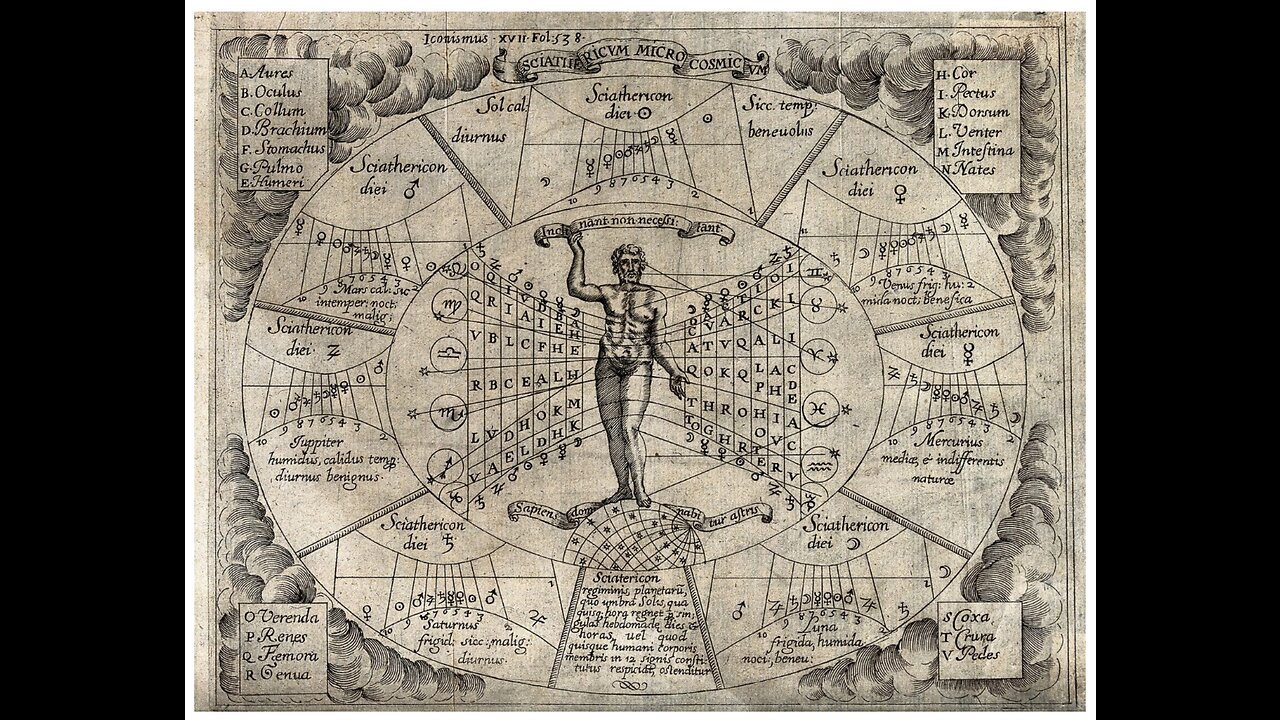Premium Only Content

How A.I. Is Influencing Astrology - The New York Times
🥇 Bonuses, Promotions, and the Best Online Casino Reviews you can trust: https://bit.ly/BigFunCasinoGame
How A.I. Is Influencing Astrology - The New York Times
The machine stood beside a deli counter, towering over cardboard boxes piled near the entrance to the Iconic Magazines store in NoLIta. It had the stature of a standing washer-dryer, with black buttons, rows of blinking lights and gauges labeled with celestial bodies — “sun,” “moon,” and the eight planets — on the front of its white facade. “It could be something from NASA,” said Tim Wiedmann, a 27-year-old student from Germany who visited the store on a Wednesday night in June. While Mr. Wiedmann stood in front of the machine, its front screen directed him to “ask the stars.” Using a knob, he cycled through some 100 questions. Among them: How do I get better at my job? Should I leave New York? Should I start a cult? Image Aesthetic inspirations for the machine included Soviet-era computers, devices used by NASA, photo booths and vending and washing machines. Credit... Amir Hamja/The New York Times After choosing a question, Mr. Wiedmann entered his birth date, time and place. The screen flashed a message that read, in part: “All answers are based on astrological calculations.” The machine, using a built-in camera, took his picture. Moments later, it spat out a piece of paper containing his grainy portrait and an answer to his question. “It’s like someone is in there,” said Mr. Wiedmann, who was one of many that came to use the machine that night. At times, lines started to snake through the store as people waited for a turn. A lot of visitors said they had heard about the machine on TikTok, including two 19-year-old students. “I asked for my red flags,” one of the students said of the question he chose, before the other student read the machine’s printed answer aloud. She said: “Your red flags include a tendency to set high expectations and a fear of conflict. Your Jupiter and Saturn placement suggests a need for perfectionism and a fear of rejection. By avoiding conflict, you may limit your potential for growth and meaningful connections. Remember, conflict is an inherent part of intimacy. Practice it with compassion and let go of unrealistic expectations.” Image People lined up outside the Iconic Magazines store on Mulberry Street to use the machine on Saturday, June 24. Credit... Amir Hamja/The New York Times Like most people who used the machine that night, neither he nor she initially knew that its answers were generated using artificial intelligence, including ChatGPT and GPT-3. The machine was developed by Co-Star, a technology company with a buzzy astrology app that uses A.I. to generate readings. It will be at Iconic Magazines for most of the summer and then move to Los Angeles later this year. Astrologers for centuries have referred to the movement and positions of planets and other celestial bodies to inform readings and horoscopes. Co-Star follows similar methods, but its daily readings are prepared by A.I. that pulls text from a database written for the app by a team of astrologers and poets. The machine, which was free to use, was created to promote Co-Star’s new in-app service, Embrace the Void, which starts at about $1. The service functions similarly to the machine: Users can ask open-ended questions that are not normally addressed in the app’s astrological readings and receive answers generated by A.I. using Co-Star’s database of prepared text. Image The machine’s answers are generated by A.I., including ChatGPT and GPT-3, using a database of text written for Co-Star by astrologers and poets. Credit... Amir Hamja/The New York Times Image From left, Tatiana Tigges, Danny Arroyo and Ella Boyle checked out the machine on June 24. Credit... Amir Hamja/The New York Times Banu Guler, 35, the founder of Co-Star, named a range of aesthetic inspirations for the machine, including Soviet-era computers, devices used by NASA, photo booths and vending and washing machines. It was also influenced by the Zoltar fortunetelling machines that were once common attractions at boardwalks and arcades, she said. “The best part is you get your little reading,” Ms. Guler said of the Zoltar machines. “And then you put your reading on your fridge, or in your book, or in your journal, or it just loiters at the bottom of your bag for months, if you’re me.” “Even though you know it’s garbage, it’s special garbage,” she added, flashing a smirk. Before starting Co-St...
-
 LIVE
LIVE
FyrBorne
13 hours ago🔴Warzone Sniping: What is the Speed of an Unladen Sniper?
72 watching -
 2:11:35
2:11:35
Badlands Media
16 hours agoThe Liberty Den Ep. 143: Fireworks, Biden’s Cancer Conspiracy, and Simulation Theory Showdown
95.8K21 -
 7:07
7:07
Colion Noir
13 hours agoBill Removes Suppressors Off NFA Passes House | One Big Beautiful Bill
78.7K26 -
 22:35
22:35
Stephen Gardner
1 day agoBiden's GETS NIGHTMARE notice from Congress!
75.6K103 -
 2:06:40
2:06:40
TimcastIRL
12 hours agoVideo LEAKS Of Woke Judge AIDING Criminal Alien ESCAPE, Claims IMMUNITY | Timcast IRL
209K128 -
 1:43:18
1:43:18
Glenn Greenwald
15 hours agoGlenn Takes Your Questions on the Trump Admin's War with Harvard, Fallout from Wednesday's DC Killing, and More; Plus: Lee Fang on Epstein's Dark Legacy in the USVI | SYSTEM UPDATE #460
157K63 -
 2:51:54
2:51:54
megimu32
11 hours agoTGI...FORTNITE?!? Friday Night Chill!
56.6K6 -
 2:36:45
2:36:45
I_Came_With_Fire_Podcast
19 hours agoEDU DEPT LAYOFFS HALTED | BIDEN CANCER | NVIDIA CRIES | TRUMP
52.7K6 -
 1:17:06
1:17:06
BEK TV
1 day agoGOVERNMENT COVER-UPS EXPOSED: VACCINE RISKS, PESTICIDES, DIPLOMATIC ASSASSINATIONS & BIDEN SCANDALS
29.8K11 -
 2:18:18
2:18:18
TheSaltyCracker
12 hours agoLefties Are Killing Jews ReeEEEStream 05-23-25
125K288